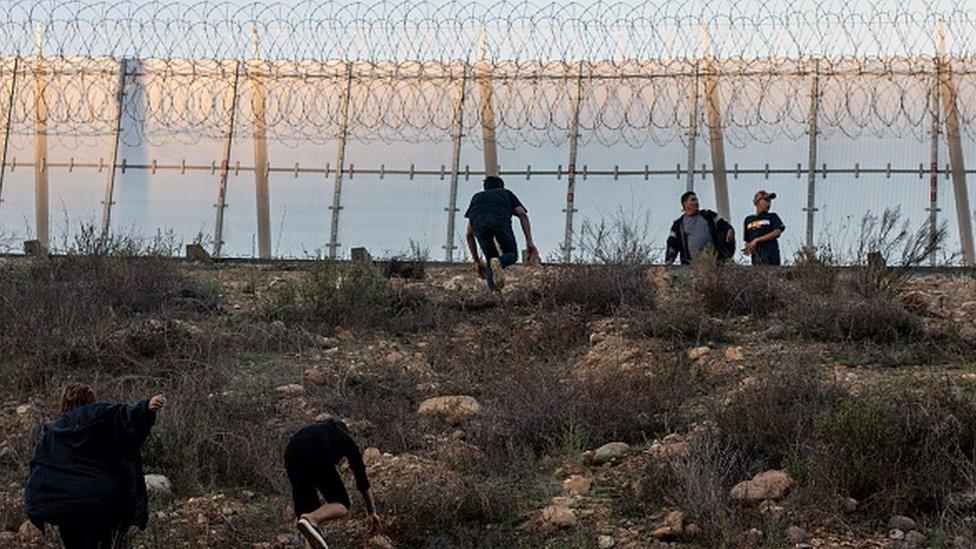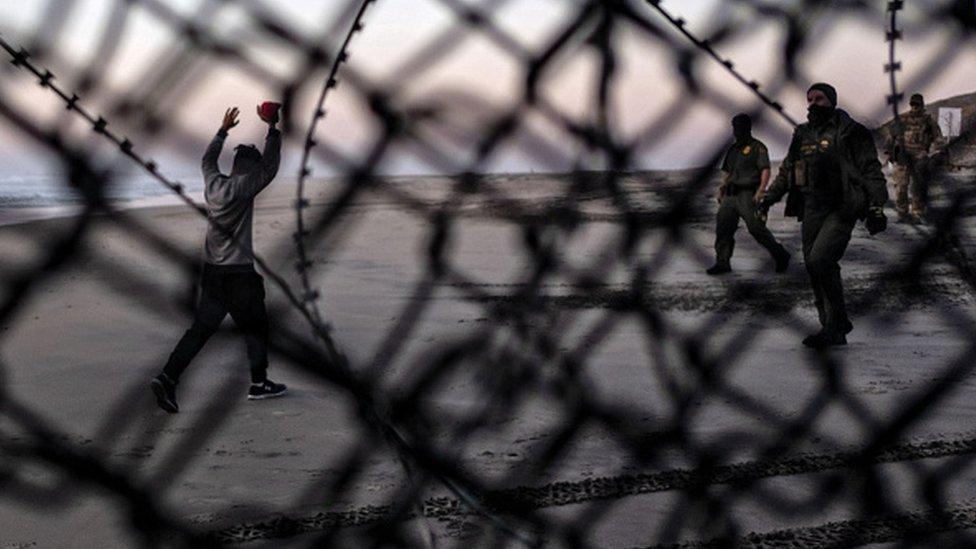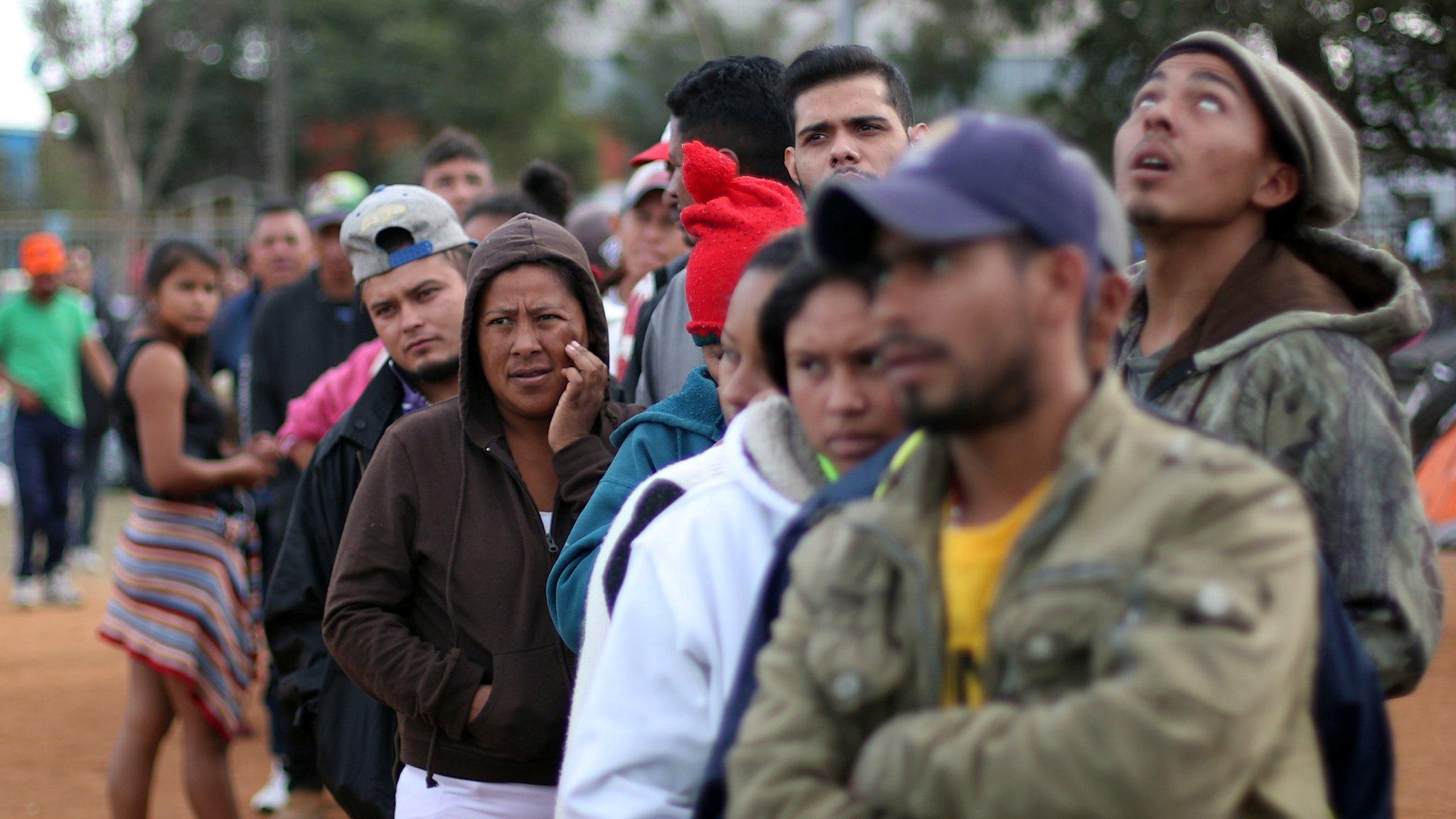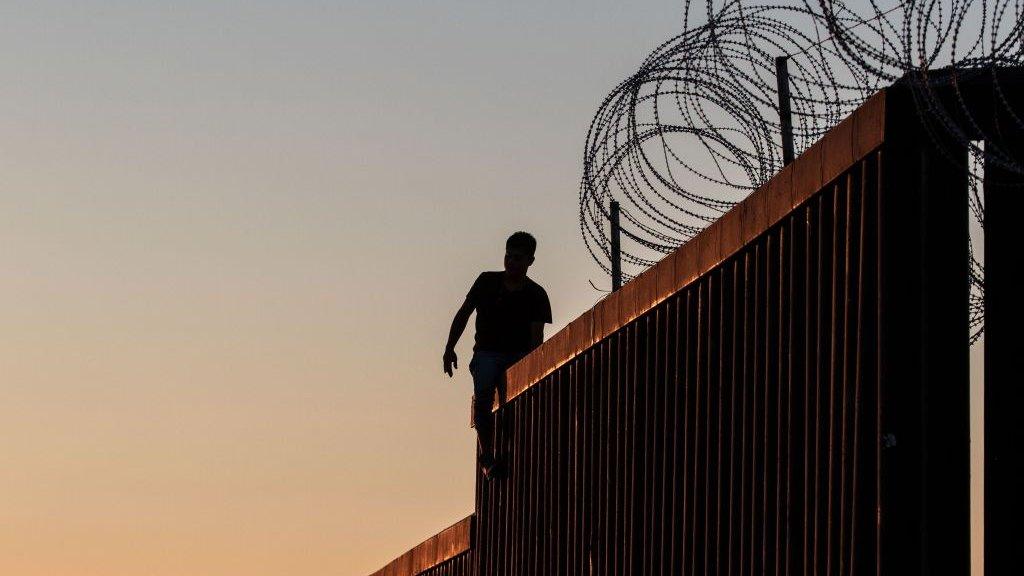People smugglers arrested in several Latin American countries
- Published

Migrants run after crossing the Mexico-US border fence in Tijuana, Mexico
A crackdown on migrant smuggling networks across the Americas has resulted in 49 arrests.
The operation was co-ordinated by Interpol which said organised crime networks were helping to smuggle South Asian migrants into the US.
Nearly $2m (£1.6m) has been recovered during anti-smuggling operations across 11 countries, Interpol says.
The arrests come amid rising tensions over US immigration policy along its southern border.
They also highlight how the US-Mexico frontier is still a major entry point for illegal immigration from outside the continent.
Interpol's four-day Operation Andes was co-ordinated across nearly a dozen countries in South America and the Caribbean, including Brazil and the Dominican Republic.
Migrants from India, Nepal and Bangladesh were reportedly paying between $15,000 and $30,000 for each journey into the United States.
Chilean authorities also found Bangladeshi migrants trying to obtain temporary visas by posing as crew members of a shipping company with the help of smugglers.
Interpol says 22 African and Haitian migrants were also rescued in Nicaragua after being "left to their fate in the mountains" by smugglers.
"With another 13 investigations opened across the region, what we are seeing is just the tip of the iceberg," said Jürgen Stock, the agency's Secretary General.

A migrant surrenders to US border patrol officers after crossing the Mexico-US border fence
Immigration, especially across the US southern border, has been a central issue of Donald Trump's presidency.
Last month, Mr Trump sent nearly 6,000 troops to the US-Mexico border to help authorities deter what became known as a caravan of migrants trying to enter from Central America.
He also signed a proclamation denying asylum for migrants crossing the US-Mexico border illegally. The decision was later blocked temporarily by a federal judge.
This week, the US government faces a potential shutdown during national budget talks as Democrats hope to block plans to build a border wall with Mexico.
In a tweet, President Trump said illegal immigration costs the United States more than $200bn (£158bn) a year, adding: "How is this allowed to happen?"
- Published18 December 2018

- Published20 November 2018

- Published17 December 2018
